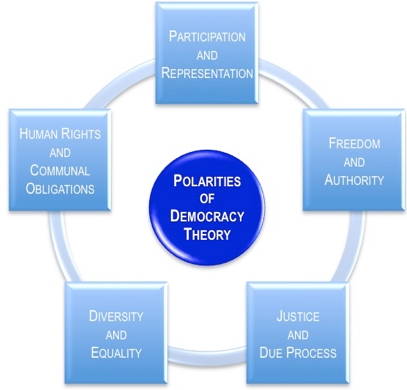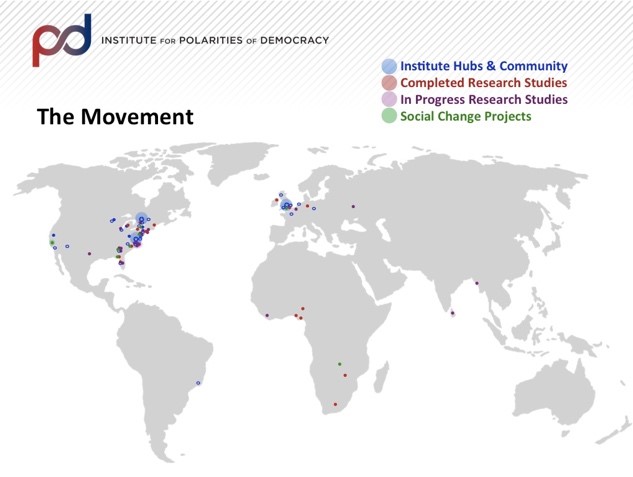Dear IPD Friends and Colleagues,
When I received confirmation of the Institute’s nonprofit status on April of 2017, I remember saying out loud…
“This. Is. POWERFUL!”
 The “power” envisioned was to advance healthy, sustainable, and just organizations and communities in the marriage of two theories and practice tools.
The “power” envisioned was to advance healthy, sustainable, and just organizations and communities in the marriage of two theories and practice tools.
The theories:
- Polarities of Democracy (POD) developed by Dr. William J. Benet that uses;
- Dr. Barry Johnson’s concept of Polarity Management/Polarity Thinking.
For those new to the work of the Institute, POD theory is comprised of ten universal democratic values in five interdependent pairs (or “polarities”).
Access and training to practice tools (developed by Polarity Partnerships) helps IPD implement positive social change in POD theory. Now, as the map below shows, the power of theory/research AND tools/action is being used across the U.S. and across the globe to articulate, communicate, and disseminate democratic republic principles and practice.

The summary below describes a few ways IPD is actively supporting individuals, teams, organizations, and large systems seeking to implement democratic principles for positive social change. While years one and two were primarily dedicated to creating infrastructure and delivering scholarship training to our Fellows, our next stages will involve coordinating coaching/consulting and education/training resources in partnership — on initiatives in service to improving well-being/quality of life and strengthening democratic principles.
 INVESTING IN CHANGE
INVESTING IN CHANGE
 CREATING IMPACT
CREATING IMPACT
We hope you will consider making a gift to support our continued growth and impact creating positive social change and strengthening democracy.
Two months ago, a generous donor offered to match our year-end contributions 1-1, up to $2,500; as of today, we’re up to $600 (or, $1,200, according to my math). Your gift will help us close 2019 with success and jump into 2020 with strong footing.
On behalf of Bill, Barry, our Managing Director/Senior Fellow Suzanne Rackl, and our Fellows/Board of Directors – thank you for your interest and energy.
This work is important.
